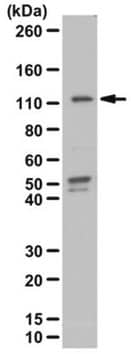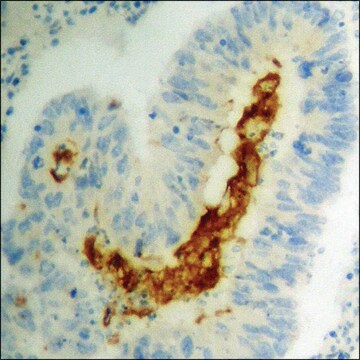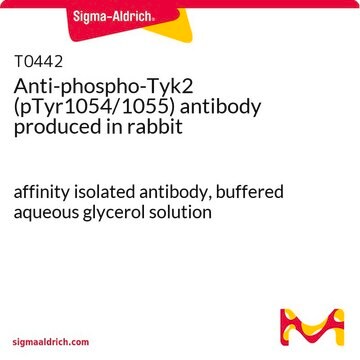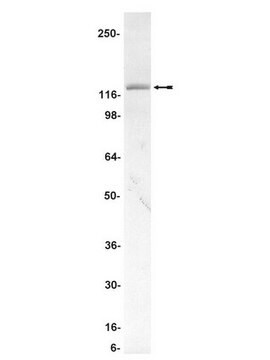07-224
Anti-phospho-STAT2 (Tyr689) Antibody
Upstate®, from rabbit
Synonym(s):
Anti-Anti-IMD44, Anti-Anti-ISGF-3, Anti-Anti-P113, Anti-Anti-PTORCH3, Anti-Anti-STAT113
About This Item
Recommended Products
biological source
rabbit
Quality Level
antibody form
affinity isolated antibody
antibody product type
primary antibodies
clone
polyclonal
purified by
affinity chromatography
species reactivity
human, mouse
manufacturer/tradename
Upstate®
technique(s)
immunoprecipitation (IP): suitable
inhibition assay: suitable
western blot: suitable
isotype
IgG
NCBI accession no.
UniProt accession no.
shipped in
wet ice
target post-translational modification
phosphorylation (pTyr689)
Gene Information
human ... STAT2(6773)
General description
Specificity
Immunogen
Application
- Immunoprecipitation Analysis: 10 µg from a representative lot immunoprecipitated phospho-STAT2 (Tyr689) in lysate from HeLa cells stimulated with Interferon and Interferon
- Peptide Inhibition Assay: Target band detection in lysate from HeLa cells stimulated with Interferon and Interferon was prevented by pre-blocking of a representative lot with the immunogen phosphopeptide, but not the corresponding non-phosphopeptide.
- Note: Actual optimal working dilutions must be determined by end user as specimens, and experimental conditions may vary with the end user.
Quality
Target description
Analysis Note
IFN-gamma then IFN-alpha treated HeLa cell lysate
Other Notes
Legal Information
Not finding the right product?
Try our Product Selector Tool.
Storage Class Code
12 - Non Combustible Liquids
WGK
WGK 1
Flash Point(F)
Not applicable
Flash Point(C)
Not applicable
Regulatory Listings
Regulatory Listings are mainly provided for chemical products. Only limited information can be provided here for non-chemical products. No entry means none of the components are listed. It is the user’s obligation to ensure the safe and legal use of the product.
JAN Code
07-224:
Certificates of Analysis (COA)
Search for Certificates of Analysis (COA) by entering the products Lot/Batch Number. Lot and Batch Numbers can be found on a product’s label following the words ‘Lot’ or ‘Batch’.
Already Own This Product?
Find documentation for the products that you have recently purchased in the Document Library.
Our team of scientists has experience in all areas of research including Life Science, Material Science, Chemical Synthesis, Chromatography, Analytical and many others.
Contact Technical Service








